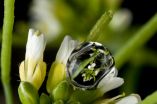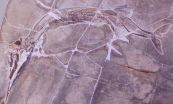Planck: An 'unfocused' eye that sees the big picture
Planck satellite helps to unveil the large-scale structure of the Universe
2015-03-31
(Press-News.org) "Planck detects, then Herschel analyzes". That's how Gianfranco De Zotti, professor at the International School for Advanced Studies (SISSA) in Trieste and at INAF-Astronomical Observatory of Padova, summarizes the rationale of the study just published in Astronomy & Astrophysics. "As Mattia Negrello had already suggested in 2005, it is precisely Planck's low resolution - optimized for the study of the cosmic microwave background but a major limitation for identifying extragalactic sources - which makes the satellite a powerful tool in the search for large-scale structures. And today we finally have the first experimental proof".
But let's take a step back. Planck is a satellite that has scanned the entire sky. It was designed to observe cosmic background radiation, that is, the residual electromagnetic energy that permeates the Universe and comes straight from the Big Bang. Its eye does not have excellent resolution (its vision is not sharp enough to see single objects of a certain type), but it's able to provide coverage of the whole sky.
Galaxy proto-clusters are the precursors of the largest dynamically stable structures in our Universe. These clusters contain many galaxies at high "redshift" (i.e., shifting towards the red end of the spectrum, a parameter astrophysicists use for calculating their distance). Given that these structures are rare and large, Planck's ability to capture the overall picture makes it particularly suited to detecting them.
In 2005, Mattia Negrello's PhD thesis at SISSA proposed a series of theoretical considerations supporting the use of Planck for this type of observation. The doubts mainly concerned the hypothesis that proto-clusters could contain a sufficient number of intensely star-forming galaxies for them to be identified by Planck. Now, an international group of scientists has just demonstrated, on the basis of observational evidence, that Negrello's hypotheses were well founded. Planck has provided the first all-sky map of high redshift sources, and with the help of the Herschel satellite (which has a "sharper" vision but coverage limited to a small portion of the sky), a more advanced characterization of these sources is being attempted. The authors of the study, led by Hervé Dole of the Institute of Space Astrophysics in Orsay, include Negrello (now at INAF-Astronomical Observatory of Padova), and De Zotti, a member of the SISSA "Planck group".
"Thanks to this new study, we now hope that Planck will be able to play a major role in research into the large-scale structure of the Universe", concludes De Zotti.
INFORMATION:
ELSE PRESS RELEASES FROM THIS DATE:
2015-03-31
In a survey of over 600 young Finns, 76% of respondents listened to music from YouTube every day.
YouTube and Spotify were by far the most popular music sources in the study. YouTube was the most frequently used service for music listening and new music discovery. Even active Spotify users visited YouTube often to complement Spotify's incomplete music selection. YouTube was also perceived as the most shareable music source by the Finnish students in their early 20s who participated in the internet-based study.
The popularity of YouTube was overwhelming. Nearly everyone ...
2015-03-31
Using the assessment tool ForWarn, U.S. Forest Service researchers can monitor the growth and development of vegetation that signals winter's end and the awakening of a new growing season. Now these researchers have devised a way to more precisely characterize the beginning of seasonal greening, or "greenup," and compare its timing with that of the 14 previous years. Such information helps land managers anticipate and plan for the impacts of disturbances such as weather events and insect pests.
Three maps detailing greenup in forests and grasslands, agricultural lands, ...
2015-03-31
Children who play video games for more than three hours a day are more likely to be hyperactive, get involved in fights and not be interested in school, says a new study. It examined the effects of different types of games and time spent playing on children's social and academic behaviour. The researchers from the University of Oxford found that the time spent playing games could be linked with problem behaviour and this was the significant factor rather than the types of games played. They could find no link between playing violent games and real-life aggression or a child's ...
2015-03-31
Sitting with a joystick in the comfort of their chairs, scientists can play "rodeo" on a screen magnifying what is happening under their microscope. They rely on optical tweezers to manipulate an intangible ring created out of liquid crystal defects capable of attaching a microsphere to a long thin fibre. Maryam Nikkhou and colleagues from the Jožef Stefan Institute, in Ljubljana, Slovenia, recently published in EPJ E the results of work performed under the supervision of Igor Muševič. They believe that their findings could ultimately open the door to controlling ...
2015-03-31
The Internet brings the world to our fingertips, but it turns out that getting information online also has a startling effect on our brains: We feel a lot smarter than we really are, according to a Yale-led study published March 30 in the Journal of Experimental Psychology.
In nine different experiments with more than 1,000 participants, Yale psychologists found that if subjects received information through Internet searches, they rated their knowledge base as much greater than those who obtained the information through other methods.
"This was a very robust effect, ...
2015-03-31
WASHINGTON - Searching the Internet for information may make people feel smarter than they actually are, according to new research published by the American Psychological Association.
"The Internet is such a powerful environment, where you can enter any question, and you basically have access to the world's knowledge at your fingertips," said lead researcher Matthew Fisher, a fourth-year doctoral candidate in psychology at Yale University. "It becomes easier to confuse your own knowledge with this external source. When people are truly on their own, they may be wildly ...
2015-03-31
PHILADELPHIA - HIV (human immunodeficiency virus)-positive kidney transplant patients experienced superior outcomes when compared to kidney transplant patients with Hepatitis C and those infected with both HIV and Hepatitis C, according to a study led by researchers at the Perelman School of Medicine at the University of Pennsylvania and published online in Kidney International.
The research team examined outcomes of 124,035 adult kidney recipients transplanted between 1996 and 2013, and found the three-year survival rate of HIV patients (89 percent) was actually very ...
2015-03-31
Inhalable particles include all particulate matter with a diameter smaller than 10 micrometers (PM10). In this group a distinction is made between even finer particles smaller than 2.5 micrometers (PM2.5) in diameter, which can deeply enter the lung, and ultrafine particles with diameters less than 0.1 micrometers (100 nanometers), which can also enter the blood stream.
The research team at Helmholtz Zentrum München led by Prof. Dr. Annette Peters, head of the research program Epidemiology at the German Center for Diabetes Research (DZD), and Dr. Alexandra Schneider ...
2015-03-31
Scientists at the John Innes Centre have discovered why the first buds of spring come increasingly earlier as the climate changes.
Dr Steven Penfield at the JIC found that plants have an ideal temperature for seed set and flower at a particular time of year to make sure their seed develops just as the weather has warmed to this 'sweet spot' temperature.
Dr Penfield, working with Dr Vicki Springthorpe at the University of York, found the sweet spot for the model plant Arabidposis thaliana is between 14-15?C. Seeds that develop in temperatures lower than 14?C will almost ...
2015-03-31
Saurichthys is a predatory fish characterized by a long thin body and a sharply pointed snout with numerous teeth. This distinctive ray-finned fish lived in marine and freshwater environments all over the world 252-201 million years ago during the Triassic period. Two new species of this extinct fish have been discovered by paleontologists at the University of Zurich, working in collaboration with researchers in Germany and China. The first species, «Saurichthys breviabdominalis», is named for its relatively short body and the second, «Saurichthys rieppeli», ...
LAST 30 PRESS RELEASES:
[Press-News.org] Planck: An 'unfocused' eye that sees the big picture
Planck satellite helps to unveil the large-scale structure of the Universe

